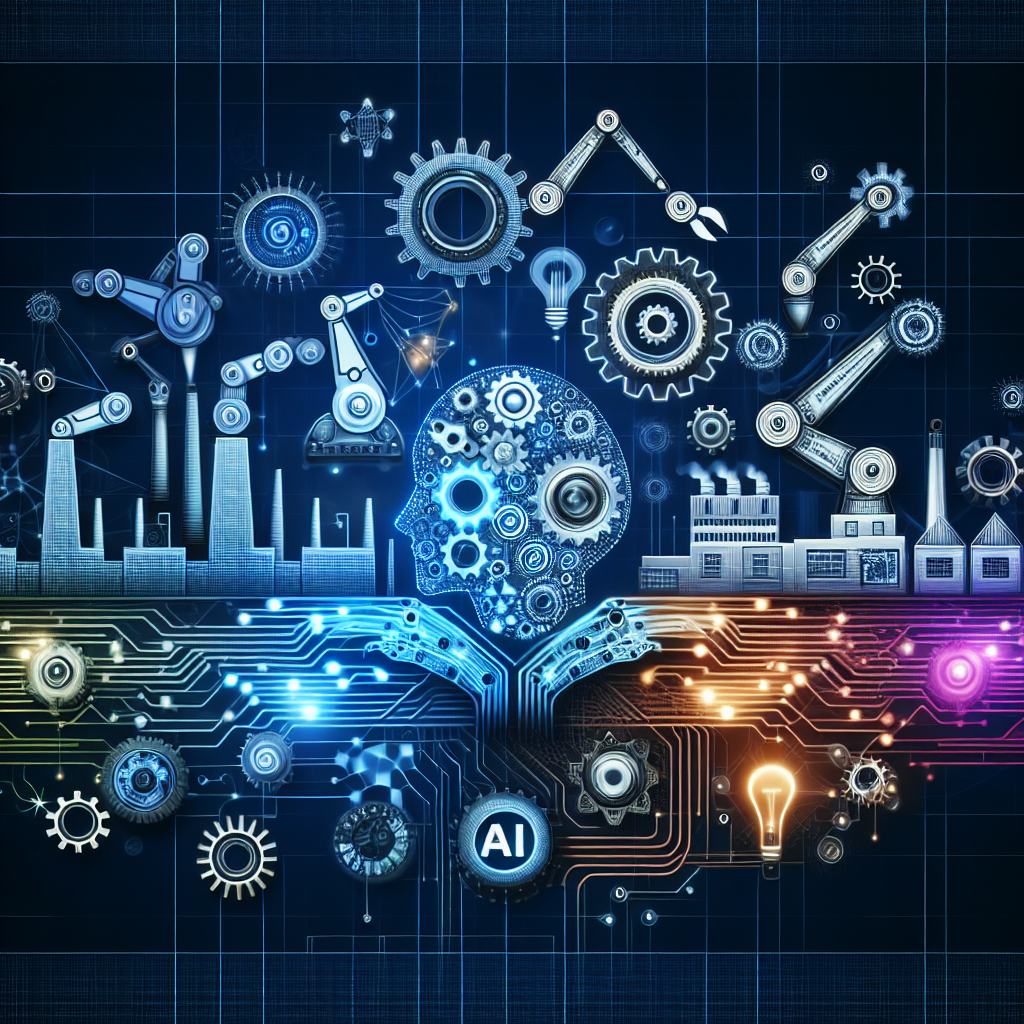AI and Cyber-Physical Systems in Manufacturing
In recent years, there has been a significant shift in the manufacturing industry towards the adoption of advanced technologies such as Artificial Intelligence (AI) and Cyber-Physical Systems (CPS). These technologies have transformed traditional manufacturing processes and have paved the way for a new era of smart factories.
AI refers to the simulation of human intelligence processes by machines, especially computer systems. It involves the use of algorithms and data to enable machines to learn from experience, adapt to new inputs, and perform tasks that typically require human intelligence. AI has the potential to revolutionize the manufacturing industry by improving efficiency, reducing costs, and enabling new levels of automation.
CPS, on the other hand, refers to the integration of physical systems with digital technologies to create smart systems that can monitor and control physical processes in real-time. CPS combines sensors, actuators, and communication technologies to enable machines to interact with their physical environment and make autonomous decisions.
In manufacturing, AI and CPS work together to create smart manufacturing systems that can optimize production processes, predict maintenance needs, and adapt to changing demand in real-time. These technologies have the potential to transform the way products are designed, produced, and delivered to customers.
One of the key applications of AI and CPS in manufacturing is predictive maintenance. By analyzing data from sensors and other sources, AI can predict when a machine is likely to fail and alert operators to take preventive action. This can help reduce downtime, improve productivity, and extend the lifespan of equipment.
Another application of AI and CPS in manufacturing is quality control. AI algorithms can analyze images, videos, and other data to detect defects in products and alert operators to take corrective action. This can help improve product quality, reduce waste, and enhance customer satisfaction.
AI and CPS can also be used to optimize production processes by analyzing data in real-time and making autonomous decisions to improve efficiency and reduce costs. For example, AI algorithms can optimize machine settings, production schedules, and inventory levels to maximize production output and minimize waste.
Overall, AI and CPS have the potential to revolutionize the manufacturing industry by enabling smart factories that are more efficient, flexible, and responsive to customer needs. However, there are also challenges and risks associated with the adoption of these technologies, such as data security, privacy concerns, and workforce displacement.
Frequently Asked Questions
Q: What are the benefits of AI and CPS in manufacturing?
A: AI and CPS can help improve efficiency, reduce costs, and enhance product quality in manufacturing. These technologies can also enable predictive maintenance, real-time optimization, and adaptive manufacturing processes.
Q: What are some of the applications of AI and CPS in manufacturing?
A: Some of the key applications of AI and CPS in manufacturing include predictive maintenance, quality control, production optimization, and supply chain management.
Q: What are the challenges and risks associated with the adoption of AI and CPS in manufacturing?
A: Some of the challenges and risks include data security, privacy concerns, and workforce displacement. Companies need to address these issues to ensure the successful implementation of AI and CPS in manufacturing.
Q: How can companies benefit from AI and CPS in manufacturing?
A: Companies can benefit from AI and CPS by improving efficiency, reducing costs, and enhancing product quality. These technologies can also help companies adapt to changing market conditions and customer demands.
Q: What are some examples of companies that have successfully implemented AI and CPS in manufacturing?
A: Some examples of companies that have successfully implemented AI and CPS in manufacturing include Siemens, General Electric, and Bosch. These companies have leveraged these technologies to improve productivity, reduce costs, and enhance product quality.
In conclusion, AI and CPS have the potential to revolutionize the manufacturing industry by enabling smart factories that are more efficient, flexible, and responsive to customer needs. These technologies can help improve efficiency, reduce costs, and enhance product quality in manufacturing. However, companies need to address challenges and risks such as data security, privacy concerns, and workforce displacement to ensure the successful implementation of AI and CPS in manufacturing. Overall, the future of manufacturing is bright with the adoption of AI and CPS technologies.

